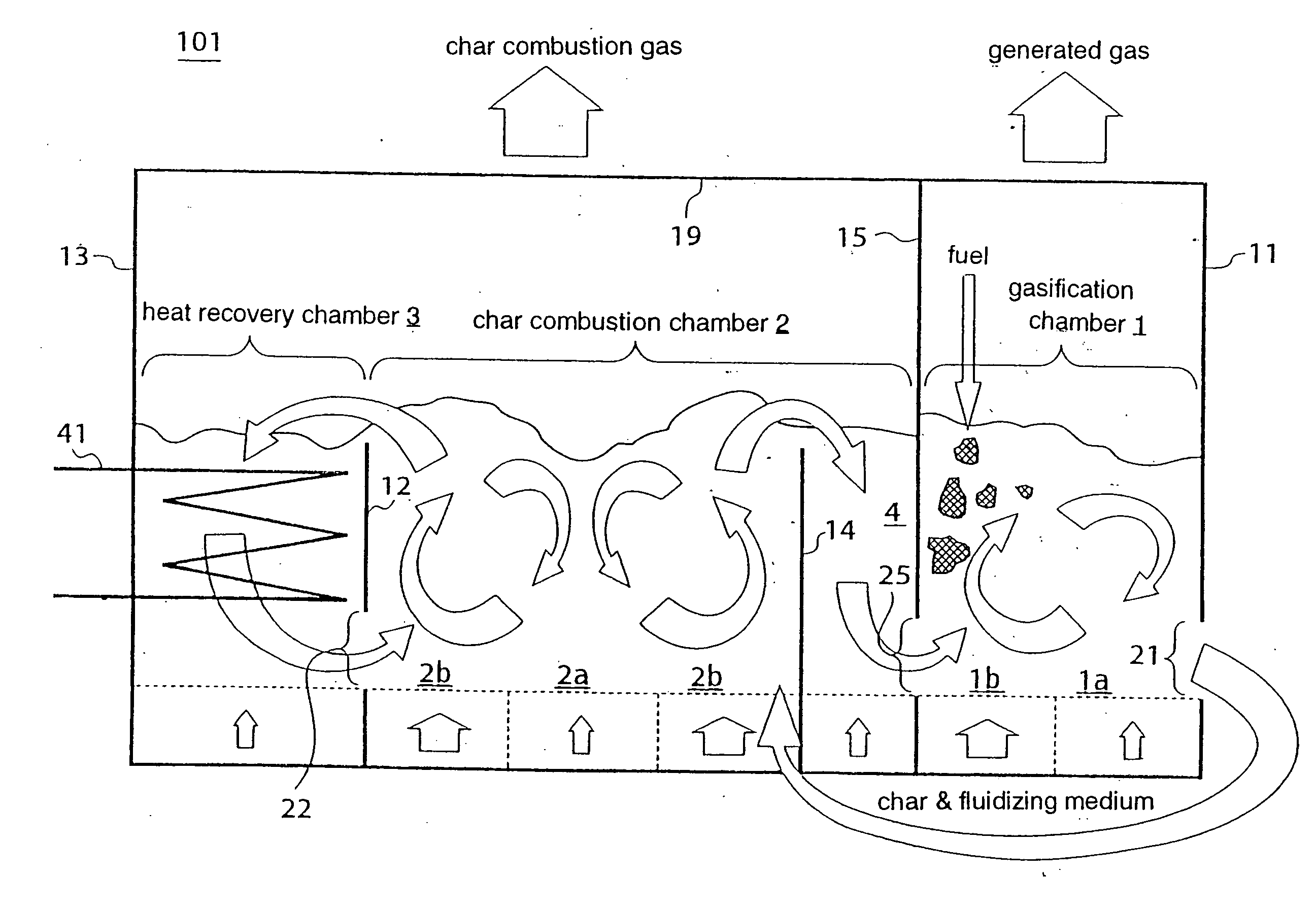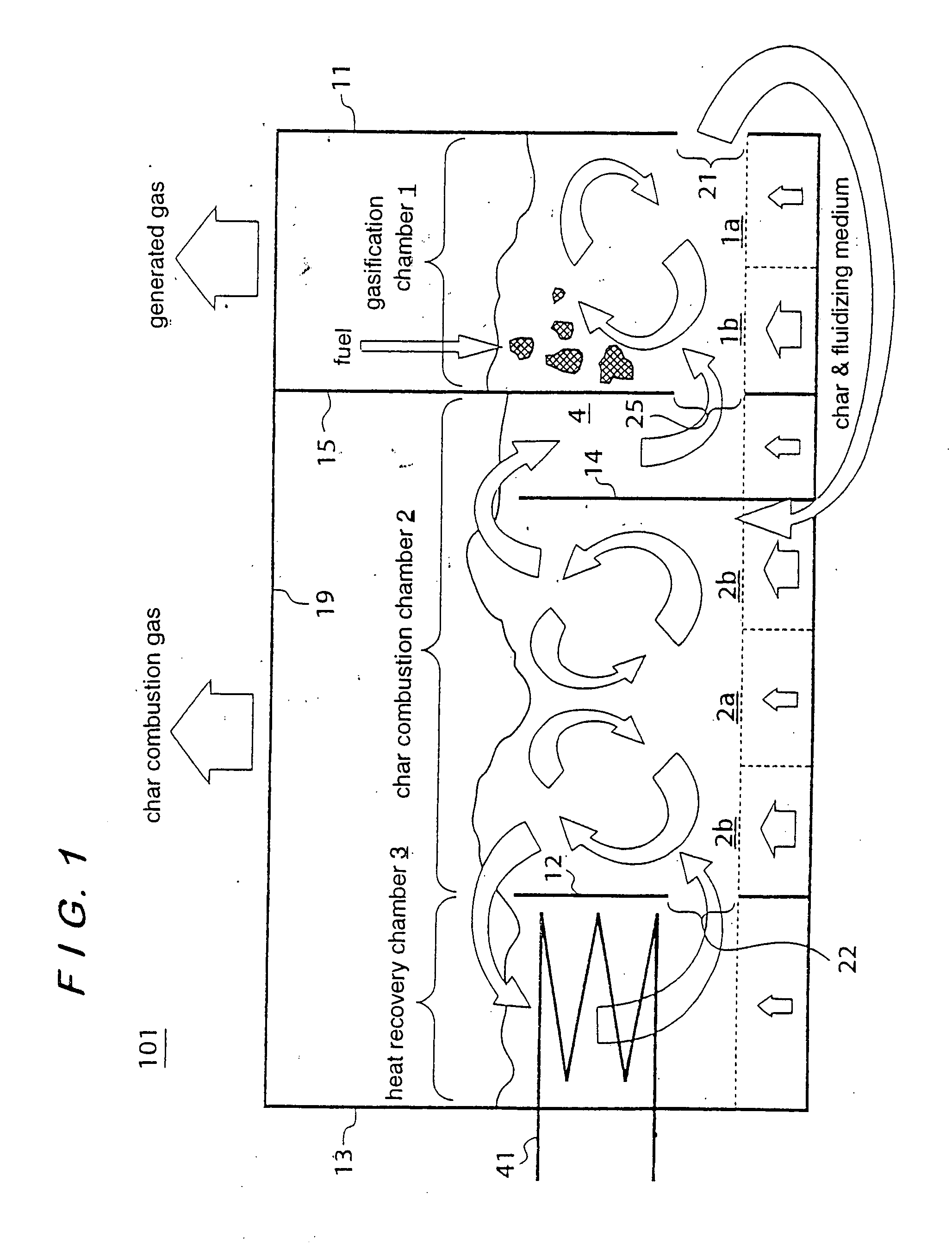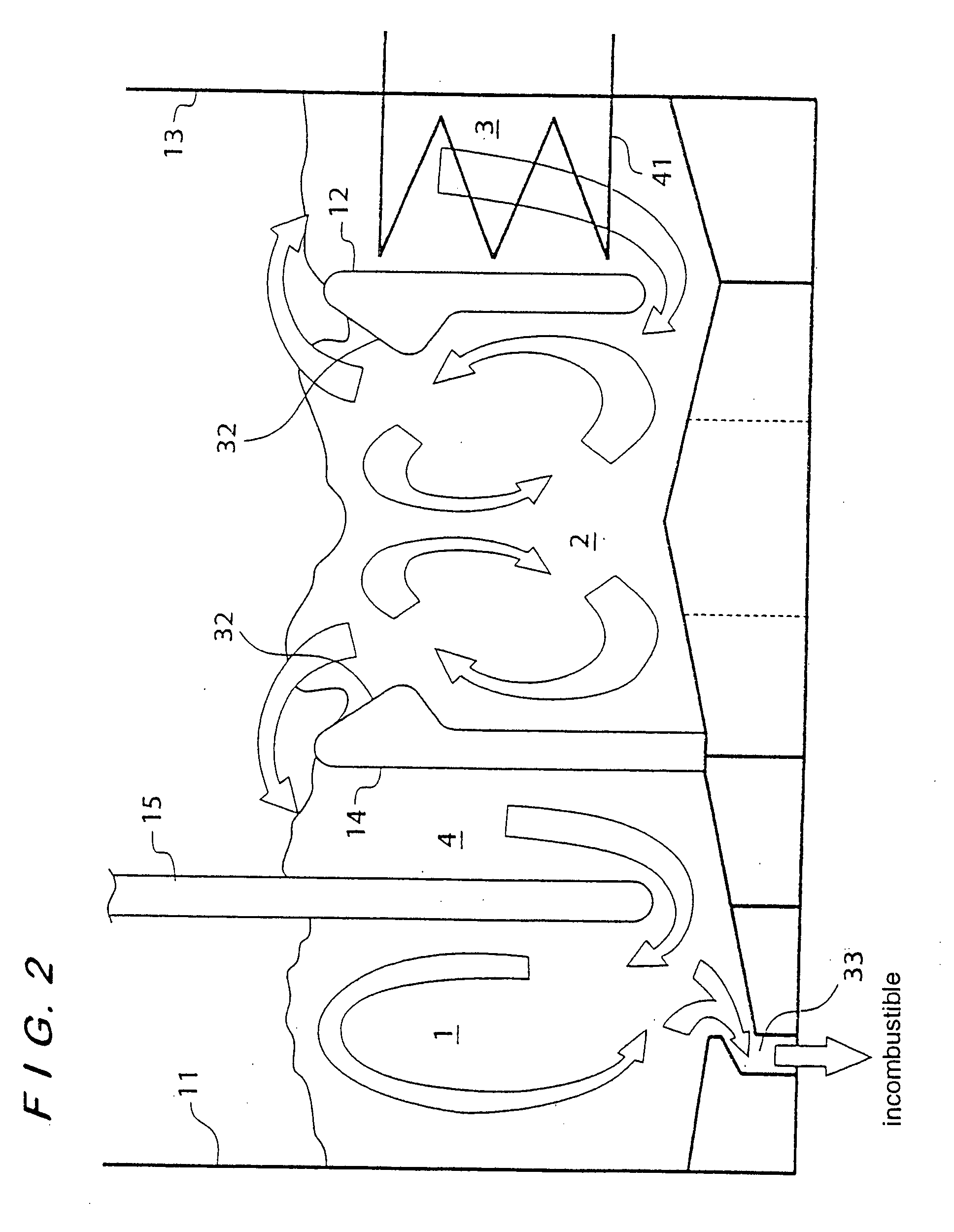Fuel gasification system
- Summary
- Abstract
- Description
- Claims
- Application Information
AI Technical Summary
Benefits of technology
Problems solved by technology
Method used
Image
Examples
Embodiment Construction
[0052] Embodiments of the present invention will be described below with reference to FIGS. 1 through 16.
[0053]FIG. 1 schematically shows the basic structure of a gasification furnace according to the present invention. An integrated gasification furnace 101 according to the embodiment shown in FIG. 1 has a gasification chamber 1, a char combustion chamber 2, and a heat recovery chamber 3 for performing three respective functions of pyrolysis (i.e., gasification), char combustion, and heat recovery, the chambers being housed in a furnace which is cylindrical or rectangular, for example, in shape. The gasification chamber 1, the char combustion chamber 2, and the heat recovery chamber 3 are divided by partition walls 11, 12, 13, 14, 15 to form fluidized beds, each comprising a dense bed containing a fluidizing medium, in respective bottoms. Gas diffusers for blowing fluidizing gases into the fluidizing medium are disposed on the furnace bottom of the chambers 1, 2, 3 for causing the...
PUM
 Login to View More
Login to View More Abstract
Description
Claims
Application Information
 Login to View More
Login to View More - R&D
- Intellectual Property
- Life Sciences
- Materials
- Tech Scout
- Unparalleled Data Quality
- Higher Quality Content
- 60% Fewer Hallucinations
Browse by: Latest US Patents, China's latest patents, Technical Efficacy Thesaurus, Application Domain, Technology Topic, Popular Technical Reports.
© 2025 PatSnap. All rights reserved.Legal|Privacy policy|Modern Slavery Act Transparency Statement|Sitemap|About US| Contact US: help@patsnap.com



